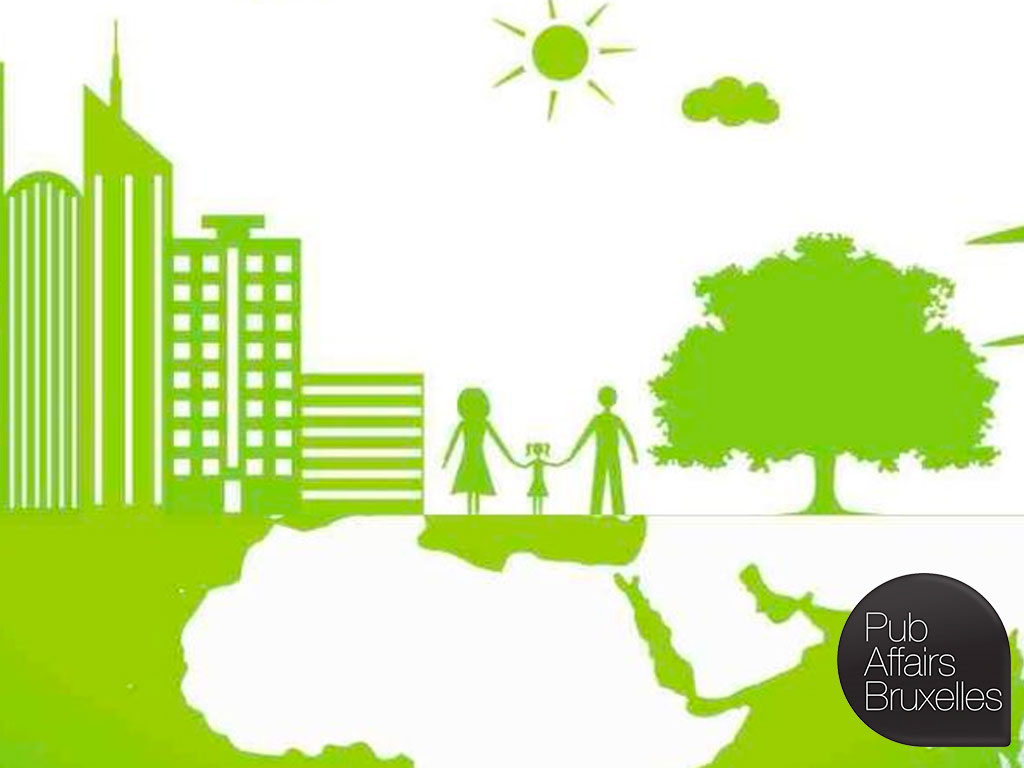We are most pleased to invite you to participate in an evening of discussion on sustainable city solutions as a central pillar for the next phase of the EU energy transition with our distinguished speakers:
- Mr Dimitrios Sofianopoulos, New Energy Technologies, Innovation and Clean Coal, European Commission, DG ENERG;
- Ms Dorthe Nielsen, Policy Director, Eurocities;
- Mr Adrian Joyce, Secretary General, European Alliance of Companies for Energy Efficiency in Buildings (EuroACE);
- Mr Marco Marijewycz, Technology Policy & Modelling, E.ON.
The debate will be moderated bu Hughes Belin, freelance journalist.
This event will be held under the Chatham House Rule.
This event was kindly sponsored by
Within the framework of
About the debate
The executive body of the European Union announced its willingness “to lead the energy transition, not only adapt to it. For this reason, the EU has committed to cut CO2 emissions by at least 40% by 2030 while modernising the EU’s economy and delivering on jobs and growth for all European citizens”. The bold stance of the European Commission has multiple goals: firstly, the fostering of the modernisation of European economy and society in order to remain coherent with the obligations stemming from both the issue of climate change and the commitments of the Paris agreement. Secondly, this policy setting should not only lower both the demand and the dependency on fossil fuels, but should also lower energy costs for EU citizens who could eventually benefit from a more sustainable environment by the use of affordable and advanced solutions.
Ambitious climate goals and respective measures to reduce CO2 emissions as part of the overall Energy Union goals present enormous challenges to cities and communities alike. In addition, cities of all scale will play a crucial role in the next phase of the energy transition towards a low-carbon society. While urban infrastructure needs to be transformed into an active player in the energy system, smart networks will connect urban and rural areas, where the massive deployment of renewable energies in Europe happened in the first place. Districts of all kinds are the nucleus of sustainable development. With decentralised and highly efficient energy solutions for new development areas and renovation projects, communities can actively shape a climate neutral environment. Furthermore, dense urbanized areas are ideal platforms for coupling together different sectors, e.g. electricity with heating and transport.
While smart meter applications and devices, as part of the development of a vision to integrate information and communication technology (ICT) and Internet of things (IoT), are the crucial enablers of the vision of sustainable city solutions, an adequate level of financing for the transition towards a low carbon energy economy is also of prior importance for the environmental and economic sustainability of the whole of the EU in the years to come. Smart city solutions could, for example, allow for proper energy storage and water and sewage treatment, as well as for smart metering and environmental monitoring. However, the policy solutions of a more sustainability-friendly EU are encountering a series of challenges.
The Clean Energy Package addresses the above mentioned issues, from local energy communities and self-consumption to smartness indicators for buildings, to long-term renovation strategy and infrastructure for E-mobility, just to mention a few. For instance, while the review of these elements is still under scrutiny, digital solutions and big data still need to be fully integrated, while the questions of data privacy and cyber security are further complicating the findings of integrated policy solutions. Last but not least, the financial side of innovative green projects has often been pointed out by experts and officials as the weak link in the chain.
The event will commence with a welcome drink at 7h00 pm, followed by a panel debate at 7.30 pm. After the panel debate there will be an opportunity for questions and discussions.
We look forward to seeing you at 7h00 pm on the 20th of June at Science14 Atrium, rue de la Science 14-B, Brussels.



